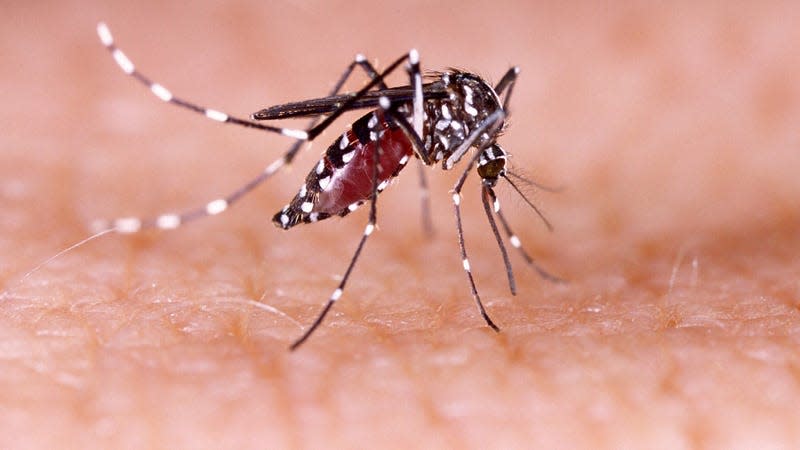In a Medical Twist, Zika Virus Could Become a Weapon Against Brain Cancer

A mosquito-borne disease best known for causing severe cranial deformities in babies may someday become humanity’s ally. Duke University scientists and others have created a weakened version of the Zika virus that could potentially be repurposed into a treatment for often fatal brain cancer. In lab experiments, their virus appeared to target and kill off tumor cells while largely leaving healthy cells alone.
Zika has been known since the 1940s, but it’s only recently that it’s received much attention. Previously only documented in parts of Africa and Asia as an occasional cause of fever, the virus began to rapidly spread across the Americas in 2015, sparking large-scale outbreaks in countries including Brazil. While most cases of Zika infection cause no or mild symptoms, these outbreaks led to the discovery that the virus can be transmitted from mother to child during pregnancy and rarely cause serious congenital conditions in newborns, particularly microcephaly (a smaller than normal head). In adults, Zika can also rarely trigger Guillain-Barre syndrome, a neurological condition that can cause long-term muscle weakness and even life-threatening paralysis.
The Zika epidemic in the Americas died down by 2017, and its incidence worldwide has remained low ever since (in the U.S., no locally acquired cases have been reported since 2018). But the virus is still circulating in much of the world, as are the mosquitoes that spread it, so Zika could pose a renewed public health threat in the future. As a result, scientists have been trying to create a vaccine against it.
Other research has found that Zika prefers to infect and kill neural stem cells in a developing fetus, which then leads to microcephaly and other complications. But since brain tumor cells tend to resemble these stem cells (they both grow very rapidly, for one), scientists working on Zika vaccines have theorized that a living but weakened version of the virus could be turned into a homing weapon against these cancers, especially glioblastoma multiforme (GBM), the most common type. One of these research teams is from Duke-NUS Medical School, a collaboration between Duke University and the National University of Singapore.
In their newest research, published last month in the Journal of Translational Medicine, the Duke-NUS team found evidence that their vaccine strain of Zika can indeed become such a weapon, at least inside a petri dish.
They found that their live-attenuated virus could easily infect and destroy GBM cells, killing between 65% to 90% of GBM cells in a population. They also found the virus had a much harder time harming healthy cells. The vaccine strains did manage to infect a smaller proportion of blood vessel cells from the brain (9% to 20%), for instance, but without killing them. While other research teams have shown that weakened Zika viruses have the potential to selectively kill cancer cells, the authors say their study is the first “in-depth molecular dissection” of how this happens.
“Since the Zika virus outbreak in 2016, understandably, there has been fear about the nature of the virus and its devastating effects,” said senior study author Ann-Marie Chacko, an associate professor from Duke-NUS’ Cancer & Stem Cell Biology Research Program, in a statement from the university. “Through our work, we hope to present the Zika virus in a new light by highlighting its potential to kill cancer cells.”
Research into Zika as a cancer killer is still in the earliest stages of development. But other brain cancer-killing viruses are already being tested in human trials, with preliminary promising results. The Duke-NUS team plans to develop their neutered virus as both a Zika vaccine and cancer treatment, one that might be able to target a wide range of cancers throughout the body, including lung, breast, prostate, and ovarian cancer.
“When a live virus is attenuated, such that it is safe and effective to fight infectious diseases, it can be beneficial to human health—not just as a vaccine but also as a potent tumor-eradicating agent,” Chacko said.

